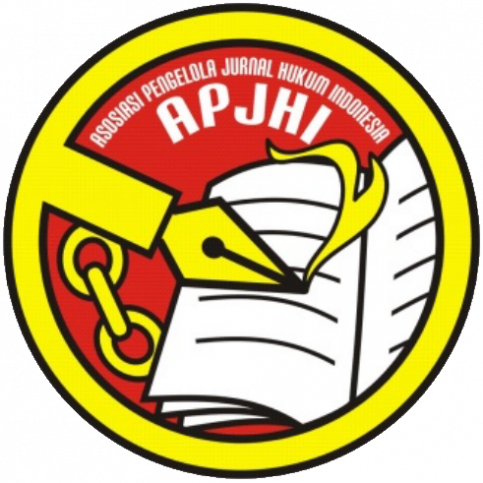Konstruksi Klausul Tanggung Jawab Sosial Lingkungan Pada Akta Perubahan Anggaran Dasar Perseroan Terbatas Di Bidang Sumber Daya Alam
DOI:
https://doi.org/10.22437/rr.v5i2.23654Keywords:
Environmental Social Responsibility, Basic Budget Changes ActAbstract
Article 74 of the Limited Partnership Act obliges entities that carry out business activities in the field and/or related to natural resources to carry out Social Responsibility for the Environment, where such obligations are estimated and accounted for as expenses of the Association, taking into account consistency and liability. The remuneration is based on the company's work plan in the annual report in the General Meeting of Shareholders, further, Article 1 paragraph (3) of the UUPT states that TJSL is the commitment of the company to participate in the sustainable economic development that is useful to improve the quality of life and the environment that is beneficial for all stakeholders. As such a commitment should the association have the desire to include the wrong clause about TJSL is one of the acts of change of the basic budget of the corporation, although in Article 15 UUPT does not regulate the existence of the component of social responsibility for the environment. The legal issue of this writing is a conflict of norms on the UUPT which states an obligation and forms a commitment, but is not a component in the basic budget of the association. The question is why the TJSL clause is important to be loaded into the act, and how the construction of such a callus, with the aim of knowing the importance and the impact of the callus if loaded in the act of change of the budget of the association. This type of research leads to normative jurisprudence, using legislative approaches, conceptual approaches through primary, skunder, and tertiary legal materials. The results of this research with the loading of the TJSL clause can provide legal certainty in the implementation of obligations, as a reminder (alarm) for the association, and created a legal order, the consequences of TJ SL either incorporated in the matter of earning profits or in a separate article against the act of change of the basic budget either through the party act (the parties) or the Act of Relaas (official report meeting)
Downloads
References
Ahmad Yani, Gunawan Widjaja, 2006, Seri Hukum Bisnis Perseroan Terbatas, PT. RajaGrafindo Persada, Jakarta.
Bahder Johan Nasution, 2008, Metode Penelitian Ilmu Hukum, Mandar Maju, cetakan ke-1 Bandung.
Binoto Nadapdap, 2018, Hukum Perseroan Terbatas Berdasarkan Undang-Undang No. 40 Tahun 2007, Jala Permata Aksara, Jakarta.
Habib Adjie, 2015, Kebatalan dan Pembatalan Akta Notaris, Refika Aditama, Bandung.
Herlin Budiono, 2013, Kumpulan Tulisan Hukum Perdata di Bidang Kenotariatan, PT. Citra Aditya Bakti, Buku Kedua, Jakarta.
Peter Mahmud Marzuki, 2005, Penelitian Hukum, Kencana Pernada Media Grup, Jakarta.
Yahya Harahap, 2016, Hukum Perseroan terbatas, Sinar Gerafik, Jakarta.
Undang-Undang Nomor 40 Tahun 2007 Tentang Perseroan Terbatas
Undang-Undang Nomor 2 Tahun 2004 Tentang Jabatan Notaris
Undang-Undang Nomor 32 Tahun 2009 Tentang Perlindungan,Pengelolaan Lingkungan Hidup.
Undang-Undang Nomor 25 Tahun 2007 Tentang Penanman Modal
Peraturan Pemerintah Nomor 47 Tahun 2012 tentang Tanggung Jawab Sosial Lingkungan.
https://www.idpengertian.com/pengertian-komitmen/ di akses pada tanggal 20 Juni 2019.
Downloads
Published
How to Cite
Issue
Section
License
Copyright (c) 2023 Nayu Triska Wulan Dari

This work is licensed under a Creative Commons Attribution 4.0 International License.
The Authors(s) retain copyrights of the Article published on Recital Review. However, before publishing, it is required to obtain written confirmation from Author(s) in order to ensure the originality (Author Statement of Originality). The statement is to be signed by at least one of the authors who have obtained the assent of the co-author(s) where applicable. This work licensed under a Creative Commons Attribution 4.0 International License). All writings published in this journal are personal views of the authors and do not represent the views of this journal and the author's affiliated institutions.Â






